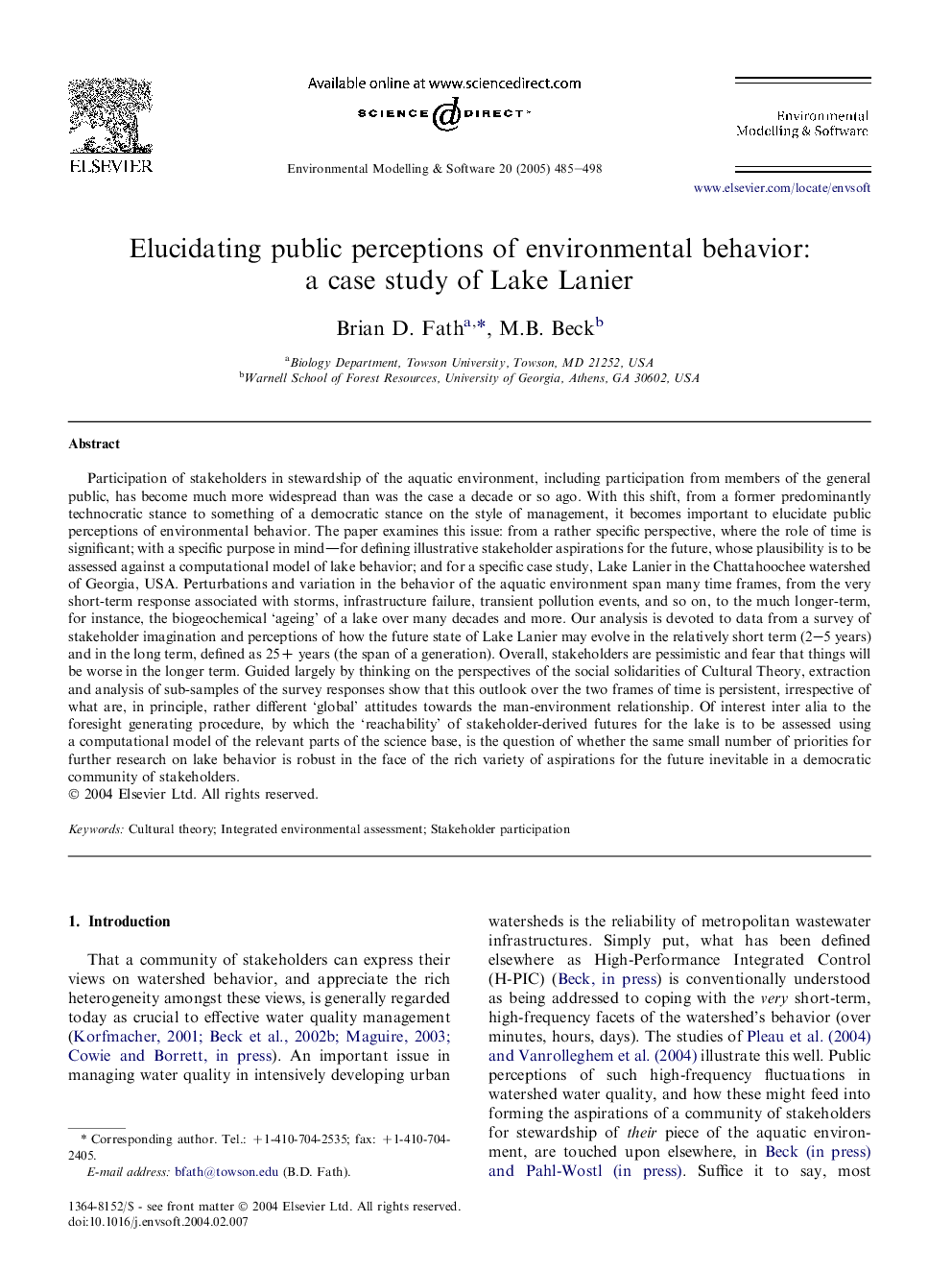| Article ID | Journal | Published Year | Pages | File Type |
|---|---|---|---|---|
| 10371239 | Environmental Modelling & Software | 2005 | 14 Pages |
Abstract
Participation of stakeholders in stewardship of the aquatic environment, including participation from members of the general public, has become much more widespread than was the case a decade or so ago. With this shift, from a former predominantly technocratic stance to something of a democratic stance on the style of management, it becomes important to elucidate public perceptions of environmental behavior. The paper examines this issue: from a rather specific perspective, where the role of time is significant; with a specific purpose in mind-for defining illustrative stakeholder aspirations for the future, whose plausibility is to be assessed against a computational model of lake behavior; and for a specific case study, Lake Lanier in the Chattahoochee watershed of Georgia, USA. Perturbations and variation in the behavior of the aquatic environment span many time frames, from the very short-term response associated with storms, infrastructure failure, transient pollution events, and so on, to the much longer-term, for instance, the biogeochemical 'ageing' of a lake over many decades and more. Our analysis is devoted to data from a survey of stakeholder imagination and perceptions of how the future state of Lake Lanier may evolve in the relatively short term (2-5 years) and in the long term, defined as 25+ years (the span of a generation). Overall, stakeholders are pessimistic and fear that things will be worse in the longer term. Guided largely by thinking on the perspectives of the social solidarities of Cultural Theory, extraction and analysis of sub-samples of the survey responses show that this outlook over the two frames of time is persistent, irrespective of what are, in principle, rather different 'global' attitudes towards the man-environment relationship. Of interest inter alia to the foresight generating procedure, by which the 'reachability' of stakeholder-derived futures for the lake is to be assessed using a computational model of the relevant parts of the science base, is the question of whether the same small number of priorities for further research on lake behavior is robust in the face of the rich variety of aspirations for the future inevitable in a democratic community of stakeholders.
Related Topics
Physical Sciences and Engineering
Computer Science
Software
Authors
Brian D. Fath, M.B. Beck,
